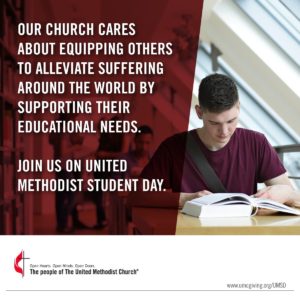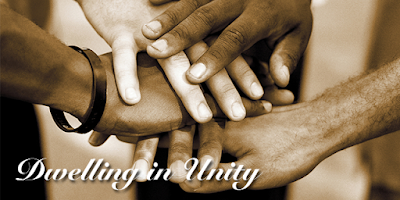Let us make 2019 “The Year of Civility”
Hello, I’m Bishop Peggy Johnson, of the Eastern Pennsylvania and the Peninsula-Delaware Conferences of The United Methodist Church.I bid you grace and peace in the name of the Lord Jesus Christ. I celebrate with you this special time of the year: Advent, Christmas and the New Year: 2019. May your churches and homes be filled with peace.
As we look to the Scriptures, I am reminded of the words of the Apostle Paul taken from II Timothy 1:7 where he writes “God has not given us a spirit of fear.”
There is a lot of trouble happening around this world right now: natural disasters, wars, rumors of war, trouble at our border, with years of immigration concern. There is a lot of fearful talk as well.
But God has not given us a spirit of fear. Fear is never from God. Fear can be summed up as “False Evidence Appearing Real.” That popular acronym reminds us that we should never fear.
God does not give us fear; but God has other, better gifts to share with us. At this time of the year we are doing some Christmas shopping and buying material gifts. However, the gifts of God are spiritual, and those gifts last forever. Here are some of God’s gifts:
1) Power
The power of God comes from the Holy Spirit that helps us overcome difficult circumstances. The Spirit gives us faith and strength in times of need. Also, the Spirit endows each of us with unique talents for mission and ministry, so that we all have parts to play in building up the Body of Christ.
2) Love
Perfect love casts out fear. God’s gift of love is Jesus Christ, who was born among us long ago. He was God’s love incarnate, but he also came to die for our salvation. His love was sacrificial, and that kind of love never fails. The love of Jesus is available to all of us.
3) Self-Control
Self-Control is so important. It is especially critical how you control the way you talk. There is a lot of negative rhetoric and fearful talk going around these days.
I would like to proclaim that the year 2019 be “The Year of Civility,” tempered by the power of God. God can help us control our tongues.
Remember: before you say something, ask yourself, “Is it true?” “Is it necessary?” “Is it kind?” If it doesn’t pass these three tests, then don’t say it. And remember to practice saying positive things about your enemies. Even a broken clock is right two times every day. The same is true of your worst enemy.
Power, Love and Self-Control. These are the gifts of God for the people of God to help us to overcome fear and life’s challenges.
I shall close with a poem by Horatius Bonar (1861)
O love that casts out fear,O love that casts out sin,O stay no more without,But come and dwell within.
True sunlight of the soul,
Surround us as we go.So shall our way be safe,Our feet no straying know.
Great love of God, come in!Thou Spring of everlasting peace,Thou living water come.Spring up in us and never cease.
Love of the living GodOf Father and of SonLove of the Holy Ghost,Make now our hearts as one.





































